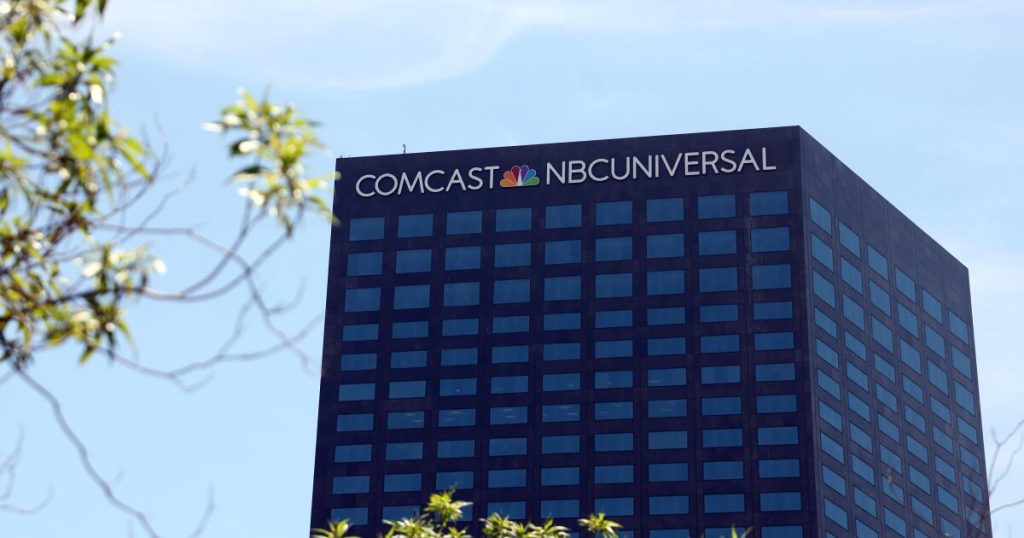The Federal Communications Commission (FCC) has launched an investigation into Comcast Corp.’s employee diversity, equity, and inclusion (DEI) programs, marking a significant escalation in its efforts to examine whether such initiatives comply with equal employment laws. Comcast, a Philadelphia-based media giant and one of the largest cable and television companies in the U.S., has stated that it will fully cooperate with the FCC to address any questions or concerns raised during the inquiry. This move by the FCC comes just weeks after Chairman Brendan Carr, who was appointed by former President Donald Trump, took charge of the agency. Carr has been a vocal critic of DEI programs, arguing that they may promote unfair discrimination. Shortly after assuming his role, Carr dismantled the FCC’s own DEI initiatives, cutting funding and staff dedicated to promoting inclusion within the agency.
In a letter addressed to Comcast Chairman Brian Roberts, Carr emphasized his intention to ensure that Comcast and other companies under the FCC’s jurisdiction are not violating federal civil rights laws or FCC regulations by implementing DEI policies. Carr highlighted that the Communications Act and FCC rules explicitly prohibit discrimination based on race, color, religion, national origin, age, or gender. He also made it clear that the investigation into Comcast is part of a broader effort to scrutinize workplace incentives and eliminate what he refers to as “the scourge of DEI.” This approach aligns with the Trump administration’s broader priorities, which have included pushing for merit-based opportunities in the private sector and rolling back DEI initiatives across various industries. For instance, Walt Disney Co. recently announced that it would soften some of its DEI policies, including removing a diversity and inclusion factor from executive compensation calculations.
The FCC’s decision to focus on Comcast may be partly due to the significant influence the agency has over Comcast’s operations. Comcast provides essential services such as cable, high-speed internet, and wireless phone offerings, and its NBCUniversal division operates television stations that require FCC licenses to function. Carr has expressed hope that the investigation into Comcast and its NBCUniversal operations will contribute to the FCC’s broader mission of identifying and addressing alleged DEI-related discrimination across all sectors it regulates. In his letter to Roberts, Carr pointed out that Comcast openly embraces DEI as a core value, with initiatives such as annual “DEI days,” diversity training for leaders, and dedicated executives to promote inclusion across its TV and programming divisions. NBCUniversal, for example, has set ambitious goals to increase diversity within its workforce, particularly in the wake of the 2020 murder of George Floyd by Minneapolis police. At the time, Cesar Conde, a senior executive at NBCUniversal, announced a target of achieving a 50% nonwhite workforce within NBC News, with the aim of enhancing diversity both on-screen and behind the camera.
The FCC’s investigation into Comcast’s DEI programs has sparked concerns about the potential chilling effect on diversity initiatives across the media and telecommunications industries. Comcast has long championed its commitment to diversity, equity, and inclusion, outlining its philosophy on its website. The company has emphasized that a diverse and inclusive workplace fosters innovation and success and has pledged to combat injustice against individuals based on race, ethnicity, gender, sexual identity, disability, or veteran status. These efforts have been particularly evident in the aftermath of George Floyd’s death, as many media organizations, including Comcast, have sought to address systemic inequalities and improve representation in their content and hiring practices.
However, the FCC’s probe is not the only controversial move by Chairman Carr. In recent weeks, Carr has also revived complaints about alleged liberal bias in major broadcast networks such as CBS, NBC, and ABC. These complaints, which date back to the 2020 presidential election, include accusations that NBC unfairly promoted then-Vice President Kamala Harris in a “Saturday Night Live” skit just days before the election, while allegedly denying Donald Trump equal access. Another complaint criticized ABC News for its handling of a debate between Trump and Harris, with some arguing that ABC anchors were biased against Trump. These issues have further polarized the media landscape and raised questions about the FCC’s role in regulating content and ensuring fairness in broadcasting.
The FCC’s investigation into Comcast also highlights the broader political and legal battles unfolding in the media industry. For instance, Trump has filed a $20 billion lawsuit against CBS, alleging unfair treatment in a “60 Minutes” interview with Kamala Harris. Trump and his supporters claimed that edits made to the interview were misleading, while CBS defended its practices, stating that condensing quotes is a routine part of its editorial process. This dispute has added uncertainty to Paramount Global’s proposed $8 billion sale to Skydance Media, as the deal requires FCC approval. With Carr at the helm of the FCC, the outcome of these negotiations remains unpredictable, further underscoring the agency’s significant influence over the media landscape.
In summary, the FCC’s investigation into Comcast’s DEI programs reflects a broader effort by the agency to scrutinize diversity initiatives in the industries it regulates, with a particular focus on ensuring compliance with equal employment laws. While Comcast has expressed cooperation with the inquiry, the move has raised concerns about the potential impact on diversity efforts across the media and telecommunications sectors. The FCC’s actions, led by Chairman Brendan Carr, are part of a larger push by the Trump administration to eliminate DEI initiatives, which it alleges may promote discrimination. As the investigation continues, companies like Comcast and media organizations like NBCUniversal will be closely watched to see how they navigate this shifting regulatory landscape and balance their commitment to diversity with the FCC’s demands for compliance.
